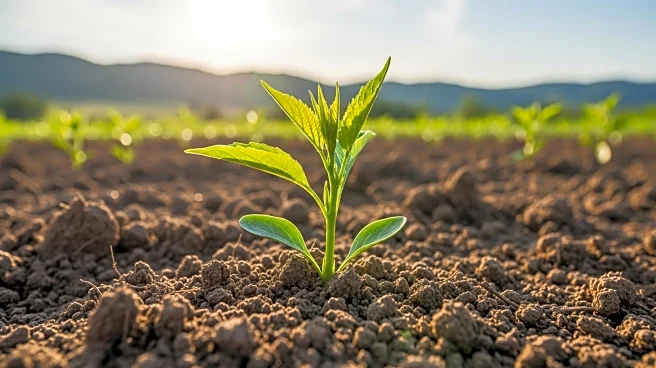What's Happening?
Regenerative agriculture (RA) is being scrutinized as it gains popularity as a sustainable farming practice. While it promises healthier soils and increased biodiversity, critics argue that it has become more of an ideology than a practical solution. In Malaysia, where oil palm is a major crop, experienced planters express skepticism about RA's effectiveness, emphasizing the need for increased yields rather than new labels. The debate centers on whether RA can truly deliver on its promises or if it is merely a marketing tool that distracts from more pressing agricultural challenges.
Why It's Important?
The discussion around regenerative agriculture is significant as it highlights the tension between sustainable practices and economic realities. For the U.S., this debate could influence agricultural policies and consumer choices, impacting industries reliant on sustainable certifications. If RA is perceived as ineffective, it could lead to a shift in focus towards more scientifically grounded practices. This could affect stakeholders ranging from farmers to multinational corporations, as they navigate the balance between environmental responsibility and economic viability.
What's Next?
The future of regenerative agriculture will likely involve a closer examination of its practical applications and outcomes. Stakeholders may push for more evidence-based approaches to sustainability, potentially leading to revised agricultural policies. Companies might also reassess their marketing strategies to align with consumer demand for genuine sustainability. The ongoing debate could drive innovation in agricultural practices, aiming to achieve both environmental and economic goals.
Beyond the Headlines
The ethical implications of regenerative agriculture's rise highlight the need for transparency and accountability in sustainability claims. As consumers become more environmentally conscious, the pressure on industries to deliver on their promises increases. This could lead to a broader cultural shift towards more responsible consumption and production patterns, influencing global sustainability efforts.








